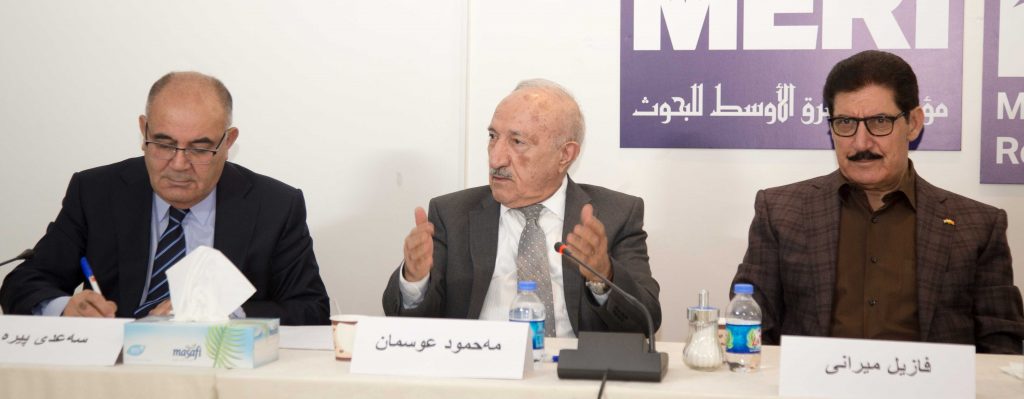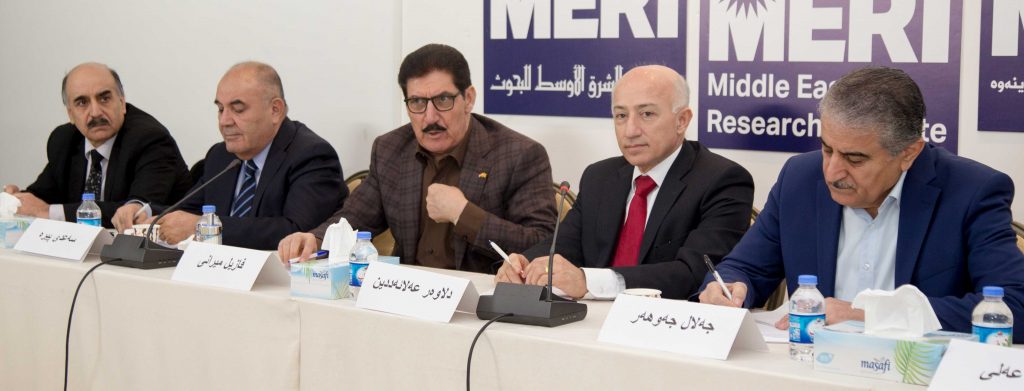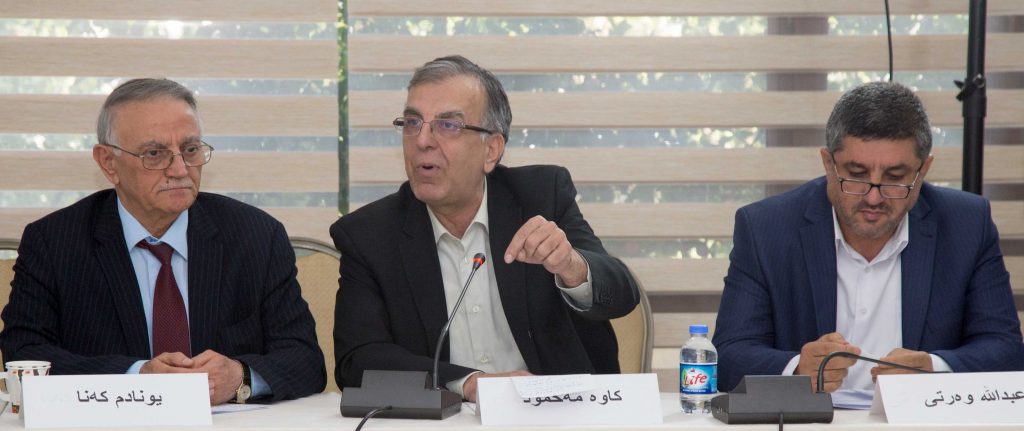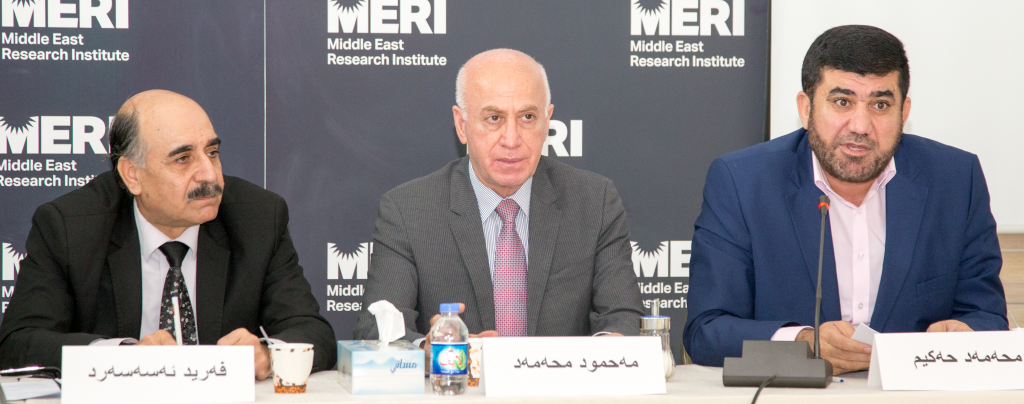The Kurdistan Region of Iraq (KRI) continues to face sober political, social and economic crises, with ramifications across the KRI and beyond. Since September 2017, tensions between the central government in Baghdad and the Kurdistan Regional Government in Erbil have hit a new high in the wake of the crisis caused largely by the Kurdistan Referendum for independence on September 25, 2017.
Influenced by such tensions, the relations between Baghdad and Erbil have deteriorated rapidly, and are in desperate need for reconciliation and restoration.
To help address these issues, MERI brought together on 13 December, 2017, KRI’s top political leaders, representing the main political parties with the aim of debating and exploring possible avenues to address the internal Kurdish fragmentation as well as mend fences with Baghdad.
Participants unanimously agreed that holding a referendum is a legitimate means for the people of Kurdistan Region to express their rights. However, the outcomes, resulted in deeper internal fractions, exacerbated long-existing structural weaknesses and negatively impacted the unity of Kurds in the KRI. The referendum has also demonstrated a miscalculation by KRI leaders of international and regional interests as well as KRI’s weak geopolitical position.
Participants were also in agreement that it would be more constructive for the KRI leaders to avoid dwelling on the past and instead seek forward-looking solutions that help unify the Kurdish stance. In order to create and maintain unity, political parties must first adopt roadmap for genuine reforms, particularly militarily such as unifying Peshmarga forces, and economic such as fighting corruption and fair management of natural resources.
It was also reiterated that it is paramount to reform the system of governance in the KRI whereby, among other things, the status of opposition is clearly defined, respected, and afforded the opportunity to meaningfully participate in the political process. The opposition, in return, is expected to function within the confinements of established political norms. Moreover, decision makers should be incorporated into the parliament and government in order to strengthen these institutions by transferring power from the political parties to the institutions of democracy.
Finally, with regard to Erbil-Baghdad relations, it was stressed that KRI leaders should prioritise dialogue with Baghdad, within the confinements of the Iraqi constitution and the rulings of the Federal Supreme Court of Iraq. To help initiate dialogue, KRI leaders should exploit all available channels to bring the stalemate between Baghdad and Erbil to an end. Concurrently, KRI leaders should engage in deeper discussions at the highest levels and across the political landscape in both the KRI and Iraq.
The roundtable was attended by:
-
- Mahmood Othman, Veteran Politician
- Fazel Mirani: Politburo Member, KDP
- Sa’di Pera, Politburo Member, PUK
- Jalal Jawhar, Member of the Executive Body, Goran Movement
- Hadi Ali, Politburo Member, Islamic Union of Kurdistan
- Mohammed Hakim, Politburo Member, The Islmaic Group
- Kawa Mahmood, Secretary General of Communist Party of Kurdistan
- Mahmood Mohammed, Politburo Member, KDP
- Yonadim Kana, Secretary General of the Assyrian Democratic Movement
- Aydin Ma’roof, Member of Kurdistan Parliament, Iraqi Turkmen Front
- Fareed Assasard, Member of the Leadership Council, PUK
- Rebwar Hamad, Spokesperson of the Islamic Group
- Ismael Namiq, Legal Department, Goran Movement
- Abdullah Warti, Politburo, Islamic Movement
- Samer Salim, Executive Body, the Islamic Union of Kurdistan
- Dlawer Ala’Aldeen, President of MERI
- Fuad Smail, MERI
- Khogir Wirya, MERI
* * * * *
About MERI: The Middle East Research Institute is Iraq’s leading policy-research institute and think tank. It is an independent, entirely grant-funded not-for-profit organisation, based in Erbil, Kurdistan Region. Its mission is to contribute to the process of nation-building, state-building and democratisation via engagement, research, analysis and policy debates.
ankara escort
çankaya escort
ankara escort
çankaya escort
escort ankara
çankaya escort
escort bayan çankaya
istanbul rus escort
eryaman escort
escort bayan ankara
ankara escort
kızılay escort
istanbul escort
ankara escort
ankara rus escort
escort çankaya
ankara escort bayan
istanbul rus Escort
atasehir Escort
beylikduzu Escort
MERI’s main objectives include promoting and developing human rights, good governance, the rule of law and social and economic prosperity. MERI conduct high impact, high quality research (including purpose-based field work) and has published extensively in areas of: human rights, government reform, international politics, national security, ISIS, refugees, IDPs, minority rights (Christians, Yezidis, Turkmen, Shabaks, Sabi mandeans), Baghdad-Erbil relations, Hashd Al-Shabi, Peshmarga, violence against women, civil society. MERI engages policy- and decision-makers, the civil society and general public via publication, focused group discussions and conferences (MERI Forum).





